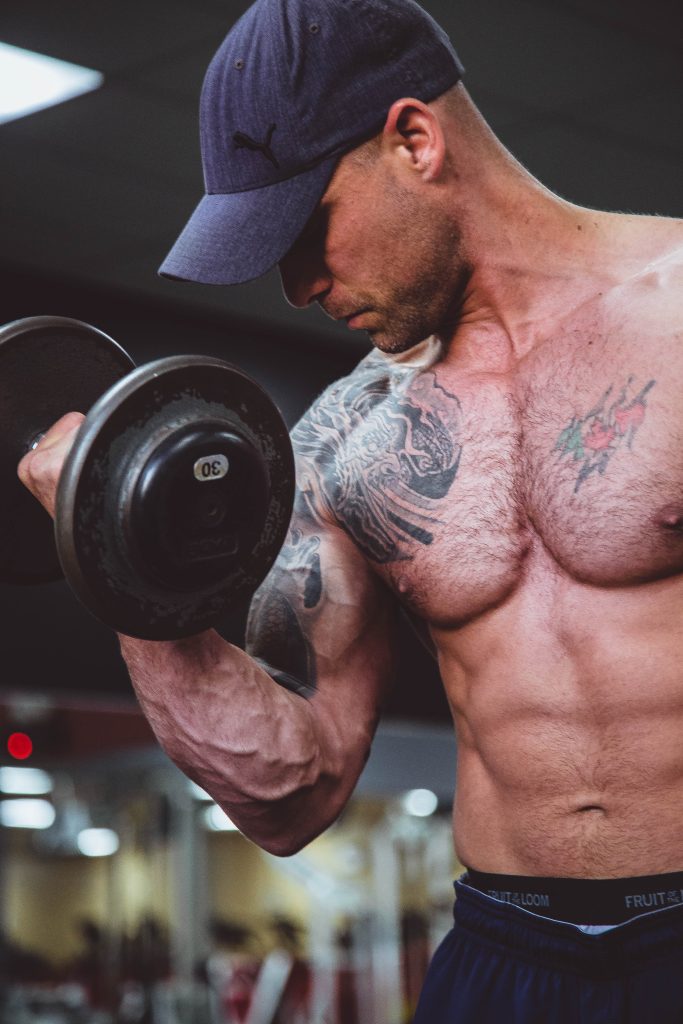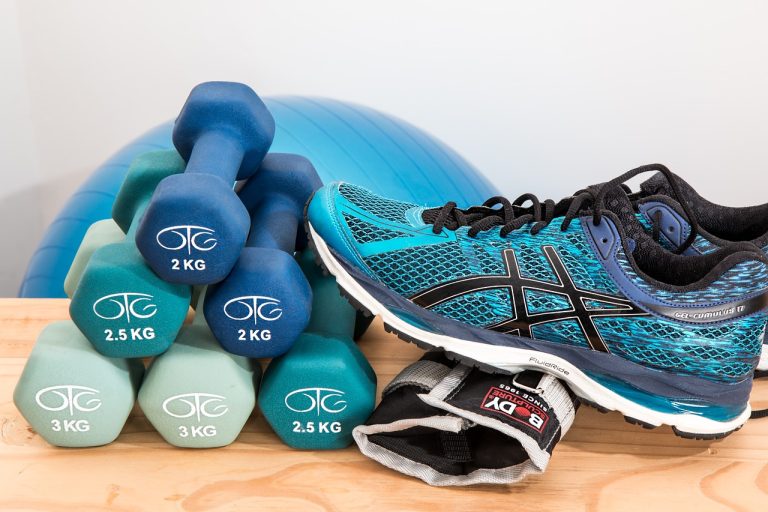Alright, so you’ve decided to take your fitness journey to the next level and venture into the world of bodybuilding. Exciting times ahead! But as you embark on this new path, one burning question inevitably comes to mind: how much protein do you actually need for bodybuilding? Don’t worry, my friend, because in this article, we’re going to dive into this topic and provide you with all the information you need to know to fuel your gains and achieve your bodybuilding goals. No more guesswork, just science-backed facts that will help you make the most out of your muscle-building journey. Let’s get started!
Table of Contents
ToggleImportance of Protein for Bodybuilding
Building and Repairing Muscles
Protein plays a crucial role in bodybuilding as it is responsible for building and repairing muscles. When you engage in intense physical activities like weightlifting or resistance training, your muscle fibers undergo microscopic damage. Protein provides the building blocks necessary for the repair and growth of these damaged muscle tissues, leading to increased muscle mass and strength. Without an adequate amount of protein in your diet, your body’s ability to repair and build muscle may be compromised.
Enhancing Muscle Growth
In addition to repair, protein also stimulates muscle growth. Proteins are made up of amino acids, which are the building blocks of muscles. When you consume protein, it gets broken down into amino acids, which are then utilized by your body to build new muscle tissue. This process, known as muscle protein synthesis, is crucial for maximizing muscle growth. By consuming enough protein, you ensure that your muscles have the necessary amino acids to support this growth process and achieve optimal gains.
Boosting Metabolism and Fat Loss
Protein not only helps in building and repairing muscles but also plays a role in boosting metabolism and promoting fat loss. Protein has a higher thermic effect compared to carbohydrates and fats, meaning that your body requires more energy to digest and process protein. This increased energy expenditure can help boost your metabolism, leading to increased calorie burning even at rest. Additionally, consuming high-quality protein can help you feel fuller for longer, reducing hunger cravings and aiding in weight management.
Protein Requirements for Bodybuilders
General Protein Guidelines
The protein requirements for bodybuilders may vary depending on factors such as body weight, training intensity, and goals. However, there are some general guidelines that can serve as a starting point. The American College of Sports Medicine (ACSM) recommends a protein intake of 1.2-2.0 grams per kilogram of body weight per day for athletes, including bodybuilders. This range ensures that you are getting enough protein to support muscle growth and repair while considering the other macronutrients in your diet.
Adequate Protein Intake for Muscle Growth
To maximize muscle growth, it is important to consume an adequate amount of protein throughout the day. The ACSM suggests that bodybuilders target the higher end of the protein intake range, aiming for approximately 1.6-2.0 grams of protein per kilogram of body weight per day. This higher intake is beneficial during periods of intense training and can help offset the increased protein breakdown that occurs during exercise. By providing your muscles with a constant supply of amino acids, you create an environment that promotes muscle growth and recovery.
Protein Timing and Distribution
While meeting your daily protein needs is important, the timing and distribution of protein intake can also impact your bodybuilding results. It is recommended to spread your protein intake evenly throughout the day, consuming protein-rich meals or snacks every 3-4 hours. This distribution helps maintain a steady supply of amino acids to support muscle protein synthesis. Additionally, consuming a source of protein within 1-2 hours before and after your workouts can enhance muscle repair and recovery.
Factors Affecting Protein Needs
Bodyweight and Lean Mass
Your bodyweight and lean mass are important factors to consider when determining your protein needs for bodybuilding. The more muscle mass you have, the higher your protein requirements may be. Additionally, individuals with a higher bodyweight generally require more protein to support muscle growth and repair. It is essential to take into account your personal body composition when calculating your protein intake.
Training Intensity and Frequency
The intensity and frequency of your training sessions also impact your protein needs. Those who engage in intense weightlifting or resistance training require more protein to support muscle recovery and growth. Similarly, individuals who train more frequently, such as those following a split routine or engaging in multiple training sessions per day, may have higher protein requirements. Adjusting your protein intake based on the demands of your training can help ensure that your muscles have enough fuel for optimal performance and growth.
Dietary Restriction and Caloric Intake
If you are following a calorie-restricted diet or aiming to lose body fat while maintaining muscle mass, it is important to pay attention to your protein intake. During periods of calorie restriction, your protein needs may be higher to prevent muscle loss. Adequate protein intake can help preserve muscle mass while promoting fat loss. It is recommended to consult with a registered dietitian or nutritionist to ensure that you are meeting both your protein and calorie needs to achieve your bodybuilding goals.
Calculating Protein Needs
Bodyweight Percentage Method
One method to calculate protein needs is the bodyweight percentage method. This method suggests consuming around 0.7-1 gram of protein per pound of bodyweight. For example, if you weigh 180 pounds, you would aim for a protein intake of 126-180 grams per day. This method provides a general guideline but may not take into account individual factors such as activity level and training intensity.
Grams per Kilogram Method
The grams per kilogram method is another commonly used approach to determining protein needs. As mentioned earlier, the ACSM recommends a protein intake of 1.2-2.0 grams per kilogram of body weight per day for athletes. To calculate your protein needs using this method, you would multiply your body weight in kilograms by the desired protein intake range. For example, if you weigh 75 kilograms and want to consume 1.6-2.0 grams of protein per kilogram, your protein goals would be 120-150 grams per day.
Activity-Based Formulas
Some activity-based formulas take into account the intensity and duration of your workouts to calculate protein needs. These formulas may consider factors such as the type of exercise performed, training volume, and the expected rate of muscle growth. While these formulas can provide a more personalized estimate, it is important to remember that individual differences exist, and consulting with a healthcare professional or registered dietitian can help determine the most accurate protein requirements for your bodybuilding goals.
Different Protein Sources for Bodybuilders
Animal Protein Sources
Animal protein sources are often favored by bodybuilders due to their high protein content and essential amino acid profile. Lean cuts of meat such as chicken breast, turkey, lean beef, and fish are excellent sources of animal protein. Eggs, dairy products like Greek yogurt and cottage cheese, and whey protein isolate are also popular choices among bodybuilders. These animal protein sources provide high-quality protein and are easily digestible, making them ideal for muscle growth and recovery.
Plant-Based Protein Sources
Plant-based protein sources are suitable options for bodybuilders who follow a vegetarian or vegan diet, or those who prefer a more plant-focused approach. Legumes such as lentils, chickpeas, and black beans, as well as tofu, tempeh, and edamame, offer significant amounts of protein. Quinoa, brown rice, and other whole grains also contribute to protein intake. Additionally, combining various plant-based protein sources can help create complete protein profiles, ensuring that all essential amino acids are obtained.
Supplement Options
Supplements can also be used to meet your protein needs as a bodybuilder. Whey protein powder is a popular supplement choice due to its high protein content and quick digestibility. Other options include casein protein powder, which is slower to digest and provides a sustained release of amino acids, and plant-based protein powders made from sources like pea, hemp, or rice protein. It is important to note that supplements should not replace whole food sources of protein but can be used to supplement a well-balanced diet when needed.
Importance of Protein Quality and Digestibility
Complete Proteins vs. Incomplete Proteins
Protein quality refers to the presence of all essential amino acids in adequate amounts. Complete proteins, commonly found in animal sources, provide all nine essential amino acids necessary for optimal protein synthesis and muscle growth. Incomplete proteins, often found in plant-based sources, lack one or more essential amino acids. However, by combining complementary plant-based protein sources, such as rice and beans, one can achieve a complete amino acid profile.
Protein Digestibility and Utilization
In addition to protein quality, digestibility is another crucial factor to consider. Different protein sources vary in their digestibility, which affects the body’s ability to utilize the protein effectively. Whey protein, for example, has a high digestibility rate, meaning that it is easily broken down and absorbed by the body. On the other hand, some plant-based proteins may have lower digestibility rates, requiring larger quantities to meet protein needs. Considering both protein quality and digestibility can help optimize protein intake for bodybuilding.
Potential Risks of Excessive Protein Intake
Kidney Strain and Function
Consuming excessive amounts of protein over a prolonged period may have potential risks. One concern that often arises is kidney strain and impaired kidney function. High protein intake can increase the workload on the kidneys, as they are involved in filtering waste products from protein metabolism. However, for individuals with healthy kidneys, the risk is generally low. It is important to note that people with pre-existing kidney conditions should consult their healthcare provider before significantly increasing their protein intake.
Bone Health and Calcium Absorption
Another potential risk of excessive protein intake is the impact on bone health and calcium absorption. Protein metabolism produces acidic by-products that require buffering agents, such as calcium from bone tissue. If dietary calcium intake is inadequate, the body may draw calcium from the bones, potentially leading to decreased bone density over time. However, maintaining a well-balanced diet that includes sufficient calcium-rich foods can mitigate this potential risk.
Nutrient Imbalance and Deficiency
While protein is essential for bodybuilding, relying too heavily on protein sources may lead to nutrient imbalances or deficiencies. A diet overly focused on protein may neglect other essential nutrients, such as carbohydrates, fats, vitamins, and minerals. It is important to maintain a balanced diet that includes a variety of nutrient-dense foods to ensure optimal health and performance. Adequate protein intake should be part of an overall nutrition plan rather than the sole focus.
Optimizing Protein Intake for Bodybuilding
Balanced Diet and Macro Distribution
To optimize protein intake for bodybuilding, it is crucial to maintain a balanced diet that includes carbohydrates, fats, and protein. Each macronutrient plays a unique role in supporting athletic performance and muscle growth. Carbohydrates provide energy for workouts and replenish glycogen stores, while healthy fats support hormone production and cellular function. By properly distributing your macronutrients, you create an environment that maximizes muscle growth and recovery.
Protein Timing and Frequency
In addition to overall protein intake, timing and frequency can influence bodybuilding results. Consuming a source of protein within 1-2 hours before and after your workouts provides a readily available supply of amino acids to support muscle repair and recovery. Spreading protein intake evenly throughout the day, with meals or snacks every 3-4 hours, ensures a constant supply of amino acids for muscle protein synthesis.
Consulting a Registered Dietitian
While the guidelines provided in this article serve as a general starting point, it is important to note that individual requirements may vary. Factors such as health conditions, training goals, and personal preferences can influence protein needs. To develop a personalized nutrition plan tailored to your bodybuilding goals, it is beneficial to consult with a registered dietitian or nutritionist. These professionals can help assess your specific needs, preferences, and guide you in optimizing your protein intake for the best results.
Conclusion
Protein is undeniably important for bodybuilders, as it supports muscle growth, repair, and enhances fat loss. The protein requirements for bodybuilders can vary based on factors such as bodyweight, training intensity, and goals. By calculating your protein needs using methods like the bodyweight percentage or grams per kilogram, you can create a solid foundation for your protein intake. Choosing a variety of protein sources, both animal and plant-based, ensures that you receive the necessary amino acids for muscle growth and recovery. Remember to consider protein quality, digestibility, and potential risks of excessive protein intake. By optimizing your protein intake through a well-balanced diet, adequate timing, and distribution, you can fuel your bodybuilding journey and achieve your desired results.









